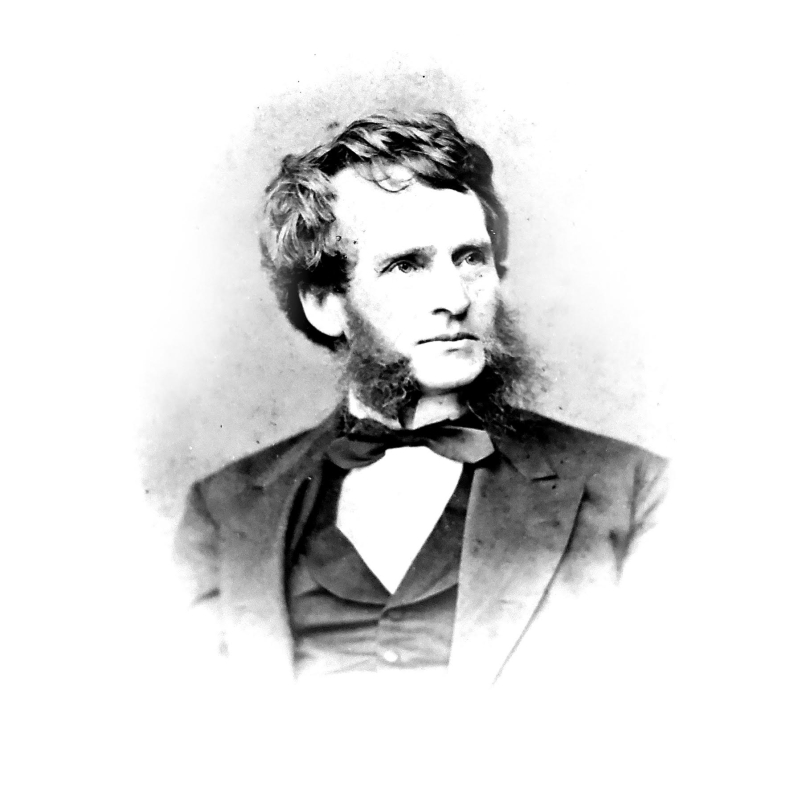One of Union’s most consequential, yet least recognized, alumni comes alive through correspondences, images, scrapbooks, journals and other materials in a new exhibit at Schaffer Library.
“Quietly Shaping History: John Bigelow’s Influence on 19th Century Politics” runs through Nov. 30 in the Lally Reading Room.
It is the culmination of a National Archives grant project designed to expand public access to the historic papers of a man whose interests and accomplishments were extraordinary in scope and significance.
Bigelow was an author, abolitionist, editor, diplomat, lawyer, philanthropist and distinguished man of letters in the 19th and early 20th centuries. He played a pivotal role in shaping America’s Reconstruction Era, the Gilded Age and the Progressive Era.
Among his many pursuits, he was appointed consul general to Paris (1861-65) by President Abraham Lincoln and served as minister to France (1865), and he helped dissuade a number of European countries from supporting the Confederacy during the Civil War. While in Paris, he also discovered the lost manuscript of Benjamin Franklin’s autobiography, which he edited and published in 1868.
He also was owner and editor with poet William Cullen Bryant of the New York Evening Post, a founder and first president of the New York Public Library, and a trustee of the Metropolitan Museum of Art.
Along with the New York Public Library, Schaffer Library houses the largest collection of Bigelow material. And thanks to a 2021 award from the National Historic Publications and Records Commission, it has been digitizing its John Bigelow Collection of some 24,000 letters.
Bigelow and his wife, Jane Tunis Poultney Bigelow, surrounded themselves with the greatest political, literary and artistic figures of their time. Among those who wrote to Bigelow were Theodore Roosevelt, Andrew Carnegie, Charles Dickens and Mark Twain.
“Most people don’t realize how prolific or what an important character in American history he was,” said Amanda Greenwood, Bigelow Project archivist and curator. “This exhibition brings his story to light and offers new insights on his pivotal role in American and world history.”
In addition to Greenwood, the grant project team consists of Joanna DiPasquale, director of Content and Digital Library Systems; Sarah Schmidt, director of Special Collections and Archives; Rebecca Fried, digital projects and metadata librarian; Corinne Chatnik, digital preservation and collections librarian; and Jennifer Byrd, library web developer.
“This exhibit is a great opportunity to explore what the collection has to offer and then return home and access even more resources digitally,” said Schmidt. “The Bigelow materials – among our largest collections – are critical for 19th and early 20th century research into numerous subjects.”
Said DiPasquale: “Digitizing this collection facilitates research from all over the world, and enables new types of scholarship and analyses. The digital brings the physical to researchers who can’t visit this amazing exhibition and our collection in person.”
Bigelow enrolled at Union as a junior in 1834 and joined the Sigma Phi fraternity and Philomathean literary society. After graduating, he studied law in New York City. His career evolved from practicing law to writing and editing. He wrote briefly for the New York Times and authored nearly 100 publications on a wide range of subject matters.
His work in politics and diplomacy involved him in significant historical events. He discouraged France from building ships for the Confederacy during the Civil War, assisted with the construction of the Panama Canal and helped to expose the political corruption of William “Boss” Tweed’s Tammany Hall in New York City.
Fighting injustice throughout his life, Bigelow also advocated for women’s suffrage, battled prisoner abuse in New York state and lobbied for environmental cleanup in the Hudson River.
Bigelow is the subject of Margaret Clapp’s 1947 Pulitzer Prize-winning biography, “Forgotten First Citizen.” He was 94 when he died Dec. 11, 1911. Union’s John Bigelow Professorship of History pays tribute to his legacy, as does an intersection in New York City (Fifth Avenue and 41st Street), John Bigelow Plaza.
And now, the Schaffer Library exhibition gives audiences a new look at his enduring contributions.

